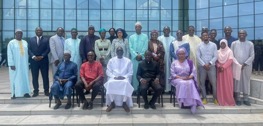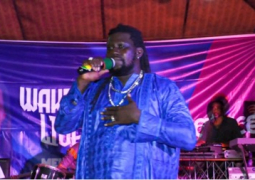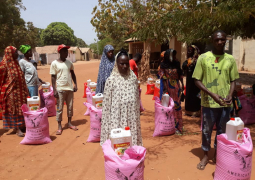
The dialogue held at Sir Dawda Kairaba Jawara Conference Centre, also accord stakeholders the opportunity to explore potential new areas of interventions to avert possible power supply shortages.
At the event, Abdou Jobe, minister of Petroleum and Energy, said the dialogue was not meant to assess the performance of the National Water and Electricity Company (NAWEC), but rather to look at realities coming in the way of the country in terms of electricity generation.
He reninded that the country imports almost 40 percent of power from the sub-region due to certain operational challenges with NAWEC’s effeciency and performance.
“Almost 40 percent of power we generate and supply to Gambians is supplied by foreign countries. How do we prepare for an instance where they decide to hold back?” he questioned.
Minister Jobe also outlined that they have recently seen the load being reduced, thus causing outages during the peak period.
“Our in-country generation cannot meet the load.”
"There is currently a lot of investment ongoing in the sector but not in generation and rather on transmission and distribution network."
Also speaking, Seedy K.M. Keita, minister of Finance and Economic Affairs, said this is the time to look at the way forward.
He disclosed that the country’s road map for power generation which aims to ensure every Gambia gets power by 2025, is dependent on out sourcing and/or contracting of power from out side the country.
“The road map has inherent risks and it was unfortunate that they were not identfied earlier,” he added, saying “when you have almost half of your power needs being threatened it is a serious matter.”
Minister Keita believes it is high time the country look inward to ensure 'we develop' a strategy that will not anchor 'our energy generation on outsourcing of power on third parties'.
He spoke of his Ministry's unrelenting stance to partner with the Ministry of Finance to provide the necessary financial support.
The outcome of the dialogue, he added, should be very concretewith a focusedtimelineresourcedriven.
He thus urged stakeholders to focus on renewable option which he saidwill planet smartour economy and is also better for cost structure in the long run.
"Electricity is now a national security and a risk to it is not only a risk to NAWEC but a systemic risk,” he further said.
Read Other Articles In National News

Melody M joins Int’l crusade to promote peace, anti-gun violence
Aug 14, 2024, 10:27 AM
Euodoo Foundation supports Janitors children in Methodist, Gambia High School
May 11, 2020, 1:16 PM



